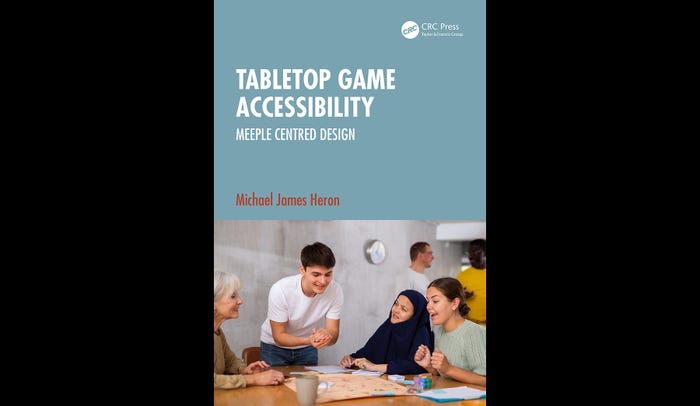This Week In Video Game Criticism: The Chaos Of The Digital/Real Photo Rings
In this week's compilation of inspired game writing, Ben Abraham looks at similarities between Chaos Rings and The World Ends With You, Metacritic as a symptom, and telling the difference between digital game and real faces.

[We're partnering with game criticism site Critical Distance to present some of the week's most inspiring writing about the art and design of video games from commentators worldwide. This week, Ben Abraham looks at similarities between Chaos Rings and The World Ends With You, Metacritic as a symptom, and telling the difference between digital game and real faces.] Another week, another fresh crop of some of the best video game blogging the web has to offer. Game Locker on YouTube brings a new instalment of his ‘Games Worth Remembering’ series, finishing up the two-part analysis of Ico and Shadow of the Colossus he started a few weeks ago. Michael Abbott at The Brainy Gamer wrote about Metacritic this week, always a contentious topic, and one that provoked a response by John Jackson at Games Aren’t Numbers, who says: "Metacritic is a symptom, not a problem. It will change when we change." After last week’s inspirational valedictory post by Clint Hocking, it seems that Raven Software’s Manveer Heir was inspired to reflect back on 5 years of working in the game industry. His brutal honesty and emotional openness is commendable in an industry fixated on controlling the message. Here’s his poignant comment on being involved with a less than enthusiastically received video game: "Hatred is not the opposite of love; apathy is. Hatred requires passion, it’s a deeply emotional state. Apathy is the lack of any emotion. So when Quake 4 was met with apathy by both critics and consumers, the toll that took on much of that development team was significant." Elsewhere, Jorge Albor was in Germany recently and took the time to visit the Jewish museum in Berlin, taking a look at some of the Nazi-era board games created to acclimatize Jewish children to the idea of emigrating, as well as their sinister Nazi counterparts designed to indoctrinate German children against Jews. Fascinating stuff. ‘Phoenix Wright’s Objection’ is by Fintan Monaghan, writing here for The Escapist. It’s a look at the non-Western legal system of Japan that doesn’t maintain the presumption of innocence, instead placing the burden of proof on the defendant. Monaghan notes that: "If you are charged with a crime in Japan and brought to trial, statistics show that there is a 99 percent chance that you will be convicted. This alarming statistic reveals the highly dysfunctional legal system from which the Ace Attorney series clearly takes its inspiration; a system where even a victim of false allegations finds it impossible to escape conviction." Calling the Japanese legal system “clearly dysfunctional” seems like a bit of a value judgement, even if Monaghan is a “three year resident of Japan” his perspective is clearly influenced by a western perspective. Nevertheless, it’s a useful and potentially eye-opening read. Tristan Kalogeropoulos writes about ‘Baby Games’ at Red Kings Dream, saying: "Walking my nine-month-old daughter around my kitchen, like a living marionette, I was suddenly hit by how much these miniature humans have in common with the characters we play in our games." Kirk Hamilton of the GamerMelodico blog compares the iPhone game Chaos Rings with 2008’s The World Ends With You. And from the news desk of the First Person Observer comes word that: “Exploration, Puzzle-Solving Teaches Kids Non-Violence, Alarmed Parents Say”. Alec Meer at Rock Paper Shotgun had a funny experience with a new piece of software that scoured his hard drive for photos, found all his game screenshots, and presented the faces of game characters right alongside the faces of humans. As Meer says, “Picasa couldn’t or wouldn’t see the difference between real or digital people. Why should it? And why should I think it’s weird that it doesn’t?” Peter Mawhorter, writing on his blog with the Expressive Intelligence Studio at UC Santa Cruz writes about ‘The Incoherence of Reincarnation: Story vs. Telling in Videogames’ which is “…about whether reincarnation in games is something that makes their worlds incoherent, and whether it is even a part of their worlds at all.” Elsewhere, Jason Killingsworth, whom long time readers will know from his writing for Paste magazine, started a blog of his own this week, and he first turned his eye to looking at the “Separation of Church & Play”. Laura Michet and Kent Sutherland are a dynamic duo from Dartmouth College who wrote in to let us know about their blog ‘Second Person Shooter’. This week, Sutherland wrote about the guilt of playing till the sun comes up, and Michet talks about when minigames are more compelling than the big-game they are embedded within. I think she’s dead on with the Oblivion alchemy/herbalism minigames – stopping to pick flowers was always one of my highlights in that game. Mark Cullinane at No Added Sugar talks about whether the jocular tone and level of bombast in previous Medal of Honor games transplanted into the modern era holds up to standards of decency. Kaye Elling guest blogs at the UK Resource Centre for Women’s GetSET Women blog, talking about her path through the industry, at one stage being the only female team member working on a game for girls (which frankly boggles the mind), and about finding her way into academia. In another notable blog, Ferguson at Interactive Illuminatus explains the importance of writing in games as he sees it. It’s not a new argument, but it’s probably worth restating until the situation improves. Julian at Little Bo Beep is embarking on an ambitious quest, to highlight “How Board Games Explain Everything” with his first part dedicated to structuralism, comparing chess to Saussure’s research into linguistics. Frankly I’m really hanging out for part 2, slated to be about Derrida and post-structuralism. Yes, really.
Read more about:
2010About the Author(s)
You May Also Like













